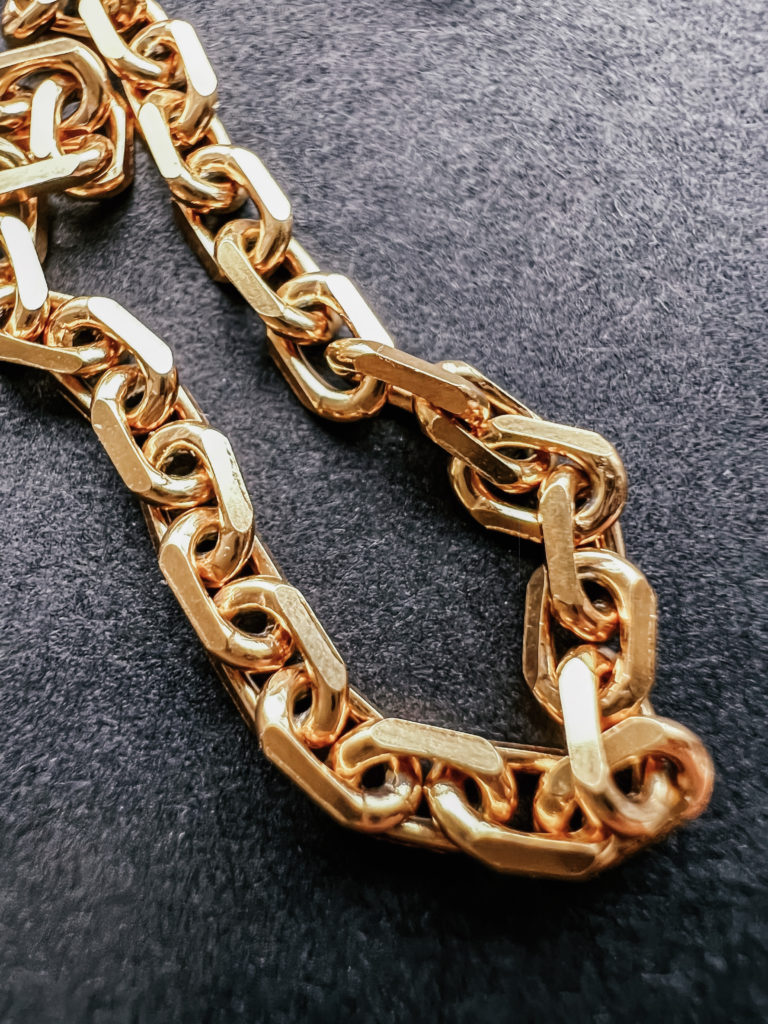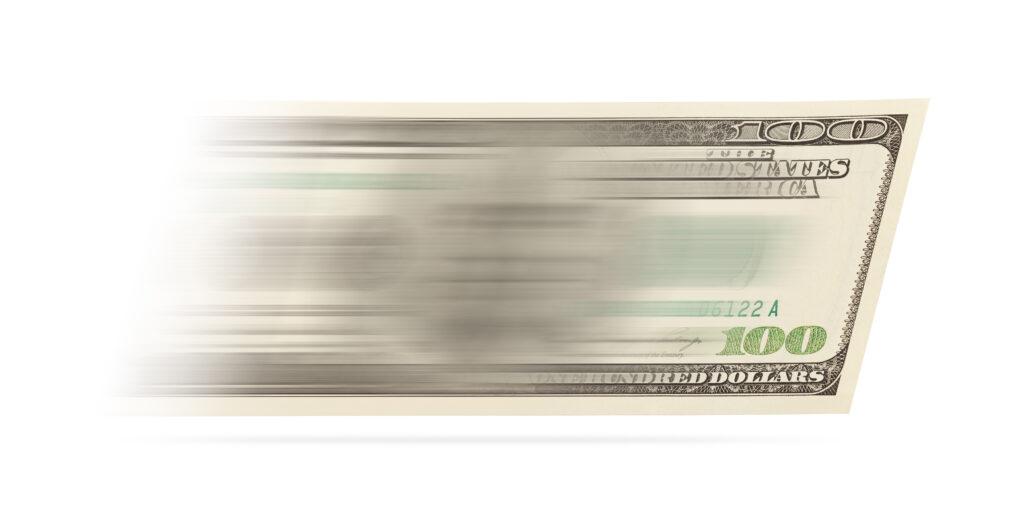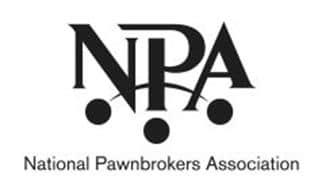Life is unpredictable, and financial emergencies can strike at any time. Whether it’s a medical bill, car repair, or any unexpected expense, having access to quick cash is essential. In such situations, pawn loans and bank loans offer two distinct paths to financial relief. While banks are known for their traditional lending services, pawnshops provide a unique way to secure short-term cash by utilizing valuable items as collateral.
In this blog, we will explore the key differences between taking out a pawn loan and a bank loan. We’ll explore how pawn loans can offer a speedy solution, what collateral loans entail, and how unused jewelry, diamonds, gold, and coins can be your lifeline during short-term financial crises, bridging the gap between paydays.
Understanding Pawn Loans – Lambert Pawn
Pawn loans, also known as pawnshop loans, are a form of secured lending. When you walk into a pawnshop seeking a loan, you offer a valuable item as collateral in exchange for a sum of money. This collateral can range from jewelry and precious metals to electronics and collectibles. The pawnshop will assess the value of your item and provide you with a loan amount based on that appraisal. Here are some key points to consider when it comes to pawn loans:
Quick Access to Cash: One of the most significant advantages of pawn loans is their speed. The entire process, from appraisal to receiving your cash, can be completed within minutes or hours. This makes them an ideal choice for addressing urgent financial needs.
No Credit Check: Unlike traditional bank loans, pawn loans do not require a credit check. Your credit history is irrelevant when seeking a pawn loan. This means that individuals with poor credit or no credit history can still access much-needed funds.
No Repayment Concerns: When you pawn an item, you’re not obligated to repay the loan. If you can’t pay it back, the pawnshop keeps your collateral without affecting your credit score. This can relieve the stress associated with monthly loan repayments.
Flexible Terms: Pawnshops often offer flexible repayment terms, allowing you to extend the loan period by paying only the interest, or you can choose to repay the principal and interest to redeem your item.
Risk to Collateral: The main downside of pawn loans is the risk of losing your collateral if you can’t repay the loan. It’s crucial to choose collateral items wisely and borrow only what you can afford to repay.
Collateral Loans and Their Utilization

A collateral loan, also known as a secured loan, is a financial transaction where you pledge an asset as security to obtain a loan from a bank or financial institution. While banks and credit unions are the most common sources of collateral loans, the concept of collateral applies to pawnshops as well.
The primary purpose of a collateral loan is to mitigate the lender’s risk. By offering valuable assets as collateral, borrowers provide assurance to lenders that they can recover their investment even if the borrower defaults on the loan. Here’s how you can use collateral loans to access quick cash:
Visit a Bank or Credit Union: To obtain a collateral loan from a bank, you need to visit a local branch or apply online. The bank will assess the value of your collateral, your creditworthiness, and the amount you wish to borrow. Common types of collateral for bank loans include vehicles, real estate, and investments.
Wait for Approval: Bank loans typically involve a more extensive application process, which includes credit checks and a detailed review of your financial history. This can take several days to weeks to complete.
Flexible Repayment Terms: Bank loans come with a fixed repayment schedule, including interest. You’ll need to make regular payments over the agreed-upon term.
Lower Interest Rates: Bank loans often have lower interest rates compared to pawn loans. This can make them a cost-effective option for those who qualify.
Using Jewelry, Diamonds, Gold, and Coins as Collateral

You might be wondering which items you can use as collateral for pawn loans or bank loans. Items that are easy to appraise and have a high market value are typically preferred. Here are some common items you can use:
Jewelry: Fine jewelry, such as gold, silver, diamonds, and gemstones, is a popular choice for collateral. The value of jewelry can be quickly assessed, making it an ideal asset for pawn loans.
Gold: Gold is a universally recognized and valuable commodity. Gold jewelry, coins, or even gold bars can be used as collateral, and their value can be easily determined based on their weight and purity.
Diamonds: High-quality diamonds can fetch a significant loan amount. The “Four Cs” (carat weight, cut, color, and clarity) determine a diamond’s value, and a certified gemologist can assess your diamond’s worth.
Coins: Rare or valuable coins, especially those made of precious metals like gold or silver, can be excellent collateral. Numismatic experts can appraise the coins’ value based on rarity and condition.
Utilizing these items as collateral can be a practical solution during financial emergencies. When you receive a loan using these valuables, you’re essentially tapping into the equity locked within them without permanently selling them.
Pawn Loan vs. Bank Loan: A Comparative Analysis

To make an informed choice between a pawn loan and a bank loan, let’s compare these two options in various aspects.
Speed of Access:
- Pawn Loan: Extremely fast, often within hours.
- Bank Loan: Slower, taking several days to weeks for approval.
Credit Check:
- Pawn Loan: No credit check required.
- Bank Loan: Typically involves a credit check.
Collateral Risk:
- Pawn Loan: Risk losing collateral if unable to repay.
- Bank Loan: Risk foreclosure of the collateral asset (e.g., vehicle or property).
Interest Rates:
- Pawn Loan: Higher interest rates compared to bank loans.
- Bank Loan: Typically offers lower interest rates.
Repayment Terms:
- Pawn Loan: Flexible terms, including interest-only payments.
- Bank Loan: Fixed repayment schedule, with principal and interest payments.
Loan Amount:
- Pawn Loan: Smaller loan amounts, usually based on collateral value.
- Bank Loan: Offers access to larger sums based on creditworthiness and collateral.
Credit Impact:
- Pawn Loan: No impact on credit score if collateral is forfeited.
- Bank Loan: Can positively or negatively impact your credit score.

When facing short-term financial emergencies, options like pawn loans and bank loans can provide a much-needed lifeline. Pawn loans offer the advantage of quick cash without the hassle of credit checks and with the flexibility of repayment terms. However, the risk of losing collateral is significant. At Lambert Pawn, the pawn brokers work with you to help you secure a loan and terms that are workable for everyone.
On the other hand, bank loans provide lower interest rates, larger loan amounts, and the potential to positively impact your credit score. However, they come with a more extended application process and stringent credit checks.
Ultimately, the choice between a pawn loan and a bank loan should be based on your unique financial situation, needs, and the value of the collateral you can offer. Whatever option you choose, remember to borrow responsibly and within your means to avoid long-term financial challenges.
In times of need, your unused jewelry, diamonds, gold, or coins can be your financial safety net, helping bridge the gap from one payday to the next. Whether you choose to work with a pawnshop or a bank, these valuable assets can be the key to securing quick cash and regaining financial stability during challenging times.
We explored the differences between pawn loans and bank loans, emphasizing the swift access to cash and the use of valuable items as collateral. However, one common concern that often arises when considering pawn loans is the fear of losing the precious items used as collateral. In this segment, we will explore how pawn loans can be a safe option, allowing borrowers to regain possession of their valuable assets when they make payments on time.
The Safety of Pawn Loans

Pawn loans offer a unique safety net for borrowers, primarily because the collateral items used to secure the loan remain the property of the borrower throughout the loan term. This means that when you take out a pawn loan, your valuables are not lost forever; they are merely held as security by the pawnshop until the loan is repaid. Here are some key aspects of pawn loans that ensure the safety of your collateral:
Item Retrieval: One of the most significant advantages of pawn loans is that borrowers can retrieve their items at any time during the loan term by repaying the loan amount, plus interest and any applicable fees. This flexibility allows you to regain ownership of your valuable assets once your financial situation stabilizes.
Loan Extension: If you’re unable to pay off the entire loan when it’s due, most pawnshops offer the option to extend the loan term by paying only the interest and fees. This provides further opportunities to keep your items secure and work towards loan redemption.
No Impact on Credit: Unlike traditional bank loans, pawn loans do not affect your credit score. This means you can safely use your valuables as collateral without worrying about the consequences on your credit history.
Risk Mitigation: Pawnshops have a vested interest in keeping your collateral safe, as they make their profits from loan interest and fees, not from selling your items. Therefore, they have strong incentives to ensure your items are stored securely.
Transparent Terms: Pawnshops are required by law to provide borrowers with clear terms and disclosures, including interest rates and fees. This transparency allows borrowers to make informed decisions and avoid unexpected surprises.
Practical Steps to Ensure Safety in Pawn Loans

To ensure the safety of your collateral and make the most of your pawn loan, consider the following practical steps:
Assess the Value: Before pawning your items, have a clear understanding of their value. You can get appraisals from multiple pawnshops to ensure you receive a fair loan amount.
Borrow Responsibly: Only pawn items you can comfortably repay. Avoid the risk of losing items that hold significant sentimental value or irreplaceable significance.
Review the Terms: Carefully review the loan terms, including the interest rate, fees, and the deadline for repayment. Ensure you understand all aspects of the loan agreement.
Keep Track of Payments: Maintain a record of your payments and due dates to avoid late fees and potential defaults. Timely payments are crucial to retrieve your collateral.
Communicate: If you encounter difficulties repaying the loan, it’s essential to communicate with the pawnshop. Many pawnbrokers are willing to work with borrowers to find solutions and avoid losing their valuable items.
Bank Loans in Comparison
While pawn loans offer unique advantages in the safety of your collateral, bank loans also have their merits. Bank loans, when managed responsibly, can be a safe and effective way to address financial needs:
Loan Security: Bank loans provide structured repayment plans, helping borrowers build credit when payments are made on time. This can be a safe path to financial stability over time.
Personal Relationships: Banks often foster personal relationships with their clients, offering financial advice and tailored solutions to address individual financial challenges.
Lower Interest Rates: Bank loans typically come with lower interest rates compared to pawn loans, making them a cost-effective option for individuals with strong credit histories.

Pawn loans provide a safe and accessible option for quick cash by utilizing your valuable assets as collateral. What sets pawn loans apart is the safety they offer, allowing borrowers to reclaim their items upon repayment, offering flexibility and peace of mind. By understanding the terms, communicating with pawnshops, and using your valuables responsibly, you can make the most of pawn loans.
It’s important to recognize that both pawn loans and bank loans have their place in the financial landscape. Lambert Pawn is available to assist customers with pawning, buying, and selling gold, diamonds, silver, instruments, and other valuables. The choice between the two depends on your specific needs, credit history, and the value of your collateral. Whichever path you choose, the key is to borrow responsibly and manage your finances prudently, ensuring that you can regain control of your financial future and valuable possessions.

